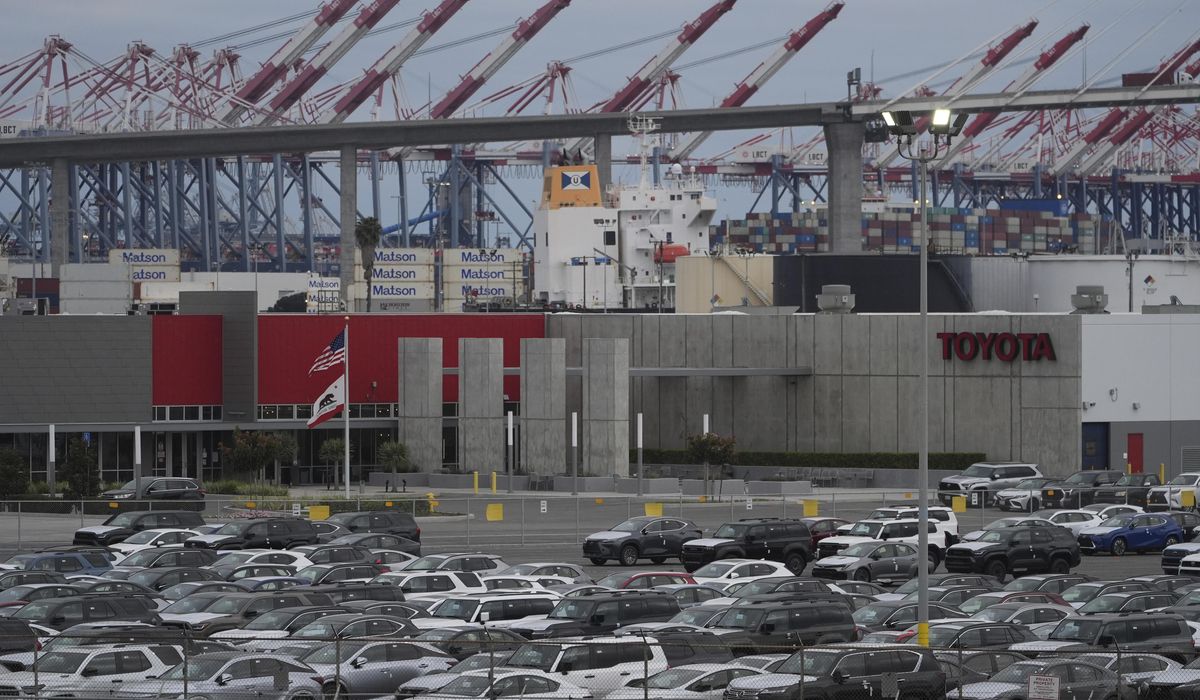


SEOUL, South Korea — Stocks in auto export powerhouses Japan and Korea both plunged Monday in anticipation of stiff new tariffs on Asian goods imported into the U.S. that are set to go into effect Wednesday.
The tariffs ordered by U.S. President Trump haven’t just roiled Asian markets — the impending trade war, according to at least one report, may have spurred a surprising new economic alliance between the two key U.S. allies and China.
Reuters on Monday reported that South Korea and Japan are working with China to fight back against American semiconductor tariffs.
That report remains unconfirmed, but market bloodshed in the two U.S. allies was all too real.
In Tokyo Monday, Japan’s benchmark Nikkei Stock Average was down 4.05% at close of business. In Seoul the same day, South Korea’s benchmark KOSPI index was down 3% after markets closed.
Due to the time difference — Seoul and Tokyo are 13 hours behind Eastern Standard Time — the full impact of the U.S. tariffs is expected to hit on Thursday.
Mr. Trump and his supporters are calling Wednesday, April 2, “Liberation Day” — a joke lost on Asia.
Though most upcoming tariffs are set to be reciprocal, the toll falls heavily on automobiles: All those imported into the U.S. are due to suffer 25% duties.
Autos are a core competency for Japan, home to carmakers including Honda, Mazda, Nissan, Subaru and Toyota, the global No.1 carmaker by sales. It is a similar story in South Korea, home to the Hyundai marque, the global No. 3 seller, which covers Hyundai, Genesis and Kia.
Since December, when then-President Yoon Suk Yeol declared martial law, and was swiftly impeached, South Korea has been led by acting presidents who lack strong, policy-setting mandates. To public frustration, the Constitutional Court has not announced when its deliberations on whether to uphold or overturn Mr. Yoon’s impeachment will be complete.
There is no policy decontrol in Japan, which recently hosted the first senior-level official of the Trump administration – Defense Secretary Pete Hegseth – to visit IndoPacific. Though Mr. Hegseth’s defense engagements proved amicable, there is undisguised and open concern in Japan about the tariff storm brewing across the Pacific.
Prime Minister Shigeru Ishiba last week told the Diet that auto tariffs will have “an extremely large impact” on Japan’s overall economy. The Bank of Japan is equally worried, and has revealed that it is factoring tariffs into its interest rate policy decisions.
Still, with Mr. Trump believed by some to be willing to walk back his first negotiating stance, there is some hope that last-minute talks may find middle ground.
“We will think about the most effective means to make the United States understand that this will not be of benefit to it,” Mr. Ishiba told parliamentarians.
Semiconductors imports to the United States will also suffer, though the 25% tariff figure is unconfirmed.
China, Japan and South Korea are all central players in chips — strategic products that are the heart of the digital economy. China is the world’s largest fabricator of legacy chips, South Korea the biggest maker of advanced memory chips, and Japan a major supplier of capital goods, chemicals and components.
In what would be a highly unusual development, Reuters, reporting from Beijing late Monday, stated that Japan, South Korea and China will jointly respond to tariffs on semiconductors.
The report followed a meet of the three countries’ trade/commerce ministers in Seoul over the weekend. Its official outcome was far from spectacular: The trilateral largely aimed at a distant free trade accord.
The Reuters story is unconfirmed: The newswire was quoting a social media account linked to state broadcaster CCTV.
It also made no mention of Taiwan, the world’s leading manufacturer of high-end, non-memory chips.
• Andrew Salmon can be reached at asalmon@washingtontimes.com.
